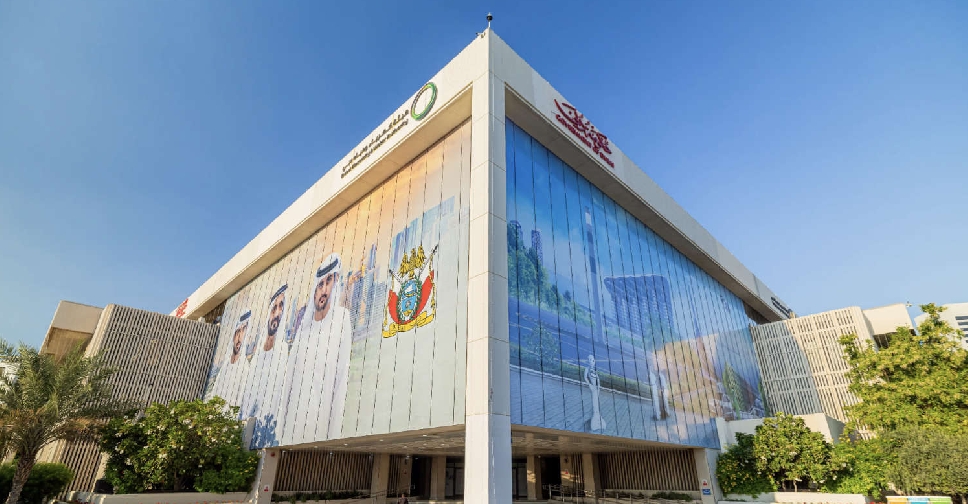
IBM is aiming to remake itself as a provider of cloud computing and data analytics, a transition that carries risks even in the best of times. With a looming global economic slowdown and a strong dollar crimping revenue earned overseas, where International Business Machines Corp. gets the majority of sales, the company lowered its full-year profit forecast, excluding some items, to $15.25 (AED56), plus or minus 50 cents. That compares with analysts’ average projection for a profit of $15.68 and IBM’s previous outlook for $15.75 to $16.50. That came on top a 14% decline in third-quarter revenue to $19.3 billion, short of the average estimate for $19.6 billion and the 14th straight quarter of shrinking sales. Chief Executive Officer Ginni Rometty is experiencing the same thing that other technology executives have seen as they shed legacy businesses to focus on new products that promise more regular subscription-based revenue, as seen with Adobe Systems Inc.’s three-year transition to the cloud. The difference is that IBM is much bigger, with almost 380,000 employees and an existing business that still needs care and attention. Sales Transition “Just at the end of the quarter, we did see an elongated sales cycle for a number of our transaction businesses, including software,” which are one-time purchases and not recurring revenue, Martin Schroeter, IBM’s chief financial officer, said in an interview. “Most importantly, we see the results of our investments in our strategic imperative growth, and we want to keep those investments going - we do not want to slow down. That has an impact on earnings.” Translation: IBM is still dependent on big software deals, which take time to secure, while it still needs to invest in new businesses that show promising early results. The shares of Armonk, New York-based IBM fell as much as 5.6% in extended trading. The stock declined less than 1% to $149.22 in New York, leaving it down 7% this year. IBM’s goal is for the new businesses to deliver $40 billion in revenue and account for 40% of total sales by 2018. “IBM is still on track for the most part - and over the next three to four years, the strategic imperatives will eclipse the legacy businesses,” said Bill Kreher, an analyst at Edward Jones & Co., referring to IBM’s new businesses. “It did slow from the previous quarter - that’s something you want to continue to monitor to gauge the success of this transformation.” Profit in the third quarter, excluding amortisation, acquisition-related charges and divested businesses, was $3.34 a share, compared with the $3.30 average estimate from analysts. The stronger U.S. dollar reduced sales by 9%age points, IBM said in a statement Monday. Dividend Stock In the three months that ended in September, IBM returned cash to shareholders by paying out $1.3 billion in dividends and repurchasing $1.5 billion in stock. The company generated $2.6 billion of free cash flow. IBM also reduced its forecast for full-year free cash flow to be relatively flat, from a modest increase. “This has been more of a dividend stock for us than anything else,” Dan Morgan, a senior portfolio manager at Synovus Securities Inc., said before the results. Depending on dividends and share buybacks “is not a sustainable plan anymore for IBM. They have to show some ability to transform to greater products.” New Business IBM said that its strategic imperatives - cloud, analytics, engagement - have grown 20% year-to-date. The group brought in $25 billion in revenue in 2014. The company has made a bet that the Watson data-analytics unit will help to drive growth. The division, which sells what IBM has called cognitive computing tools, has yet to reach $1 billionin revenue. “Everyone’s going to be all eyes on how Watson is doing, how their cloud initiative is doing,” Morgan said. “Unfortunately for IBM, that initiative isn’t big enough to get too excited about because they’ve got so many other moving parts.” His company, which has $10.6 billion assets under management as of end of the third quarter, holds IBM stock. Within the services division - IBM’s biggest - revenue as reported for Global Technology Services fell 10% to $7.94 billion, while Global Business Services sales dropped 13% to $4.21 billion. The slump in GBS sales, due to a slower-than-anticipated transformation toward the strategic imperatives, also helped account for the reduction in the full-year forecast, Schroeter said. Part of that shift includes building out a recently created consulting unit that focuses on cognitive consulting, he said on a conference call. Revenue in the hardware division fell 39% to $1.49 billion. Software sales as reported decreased 10% to $5.14 billion. “It really is on us to keep driving that transformation,” Schroeter said, adding that the shift “takes a little while.” (By Jing Cao/Bloomberg)



 DEWA contributes AED 20m to Fathers’ Endowment campaign
DEWA contributes AED 20m to Fathers’ Endowment campaign
 DP World reports record $20 bln revenue in 2024
DP World reports record $20 bln revenue in 2024
 UAE cinema industry records AED 800m in revenue in 2024
UAE cinema industry records AED 800m in revenue in 2024
 Abu Dhabi reports major growth in consumer protection indicators
Abu Dhabi reports major growth in consumer protection indicators


